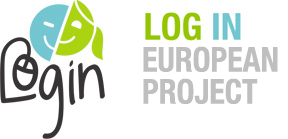Project activities
In order to achieve its objectives, LOG IN foresees the following activities:
- elaboration of training packages (elaboration of a training package addressed to youths and a training package addressed to adults; test of these packages on a restricted sample of 50 youths and 30 adults in Modena; adaptation of the packages to local contexts in Nicosia, Vilnius and Sibiu);
- implementation of pilot actions of training and awareness-raising in Modena, Nicosia, Vilnius and Sibiu (12 hour training sessions for at least 250 youths and 6 hour training courses for at least 400 adults per city; activation of peer education actions, both vis-à-vis and through social networks, in order to involve at least other 750 adolescents per city);
- evaluation of the impact of pilot actions (through ex-ante and ex-post questionnaires);
- communication and dissemination activities (websites, guidelines, events, etc.).
Two are the target groups of the project: boys and girls aged 14-18; teachers, educators and parents.
Final beneficiaries are women, being training courses addressed at preventing episodes of physical and psychological violence against women encouraged by social networks and new media.
The strengths of the LOG IN methodology are the use of peer education during which some trainees will become trainers of other students and the exploitation of new technologies. This approach makes the training action more responsive to the needs and communication styles of young people and encourages an active participation and the assumption of responsibility by youths.
The main results expected from the project are: a greater awareness among young people and adults about the role that new media can play in encouraging new forms of violence against women; a more responsible use of new technologies by young people; a better understanding by youths of issues of gender and equal opportunities. To be considered that the actions will involve at least 4.000 adolescents and 1.600 adults.
During the project implementation many outputs (pilot training sessions involving adolescents and adults and dissemination events such as conferences addressed to stakeholders, events and an online competition addressed to youths) will be organised and many deliverables (all dissemination products such as websites, project guidelines, videos, etc.) will be produced.
LOG IN communication activities are directed to two main target groups: all stakeholders interested in repeating the project pilot actions in other contexts and young people. This dissemination strategy will be very effective, because it foresees the production of all deliverables in all project partners' national languages, promotes an active participation of the targets, exploits the potential of new media in amplifying the impact of communication.



